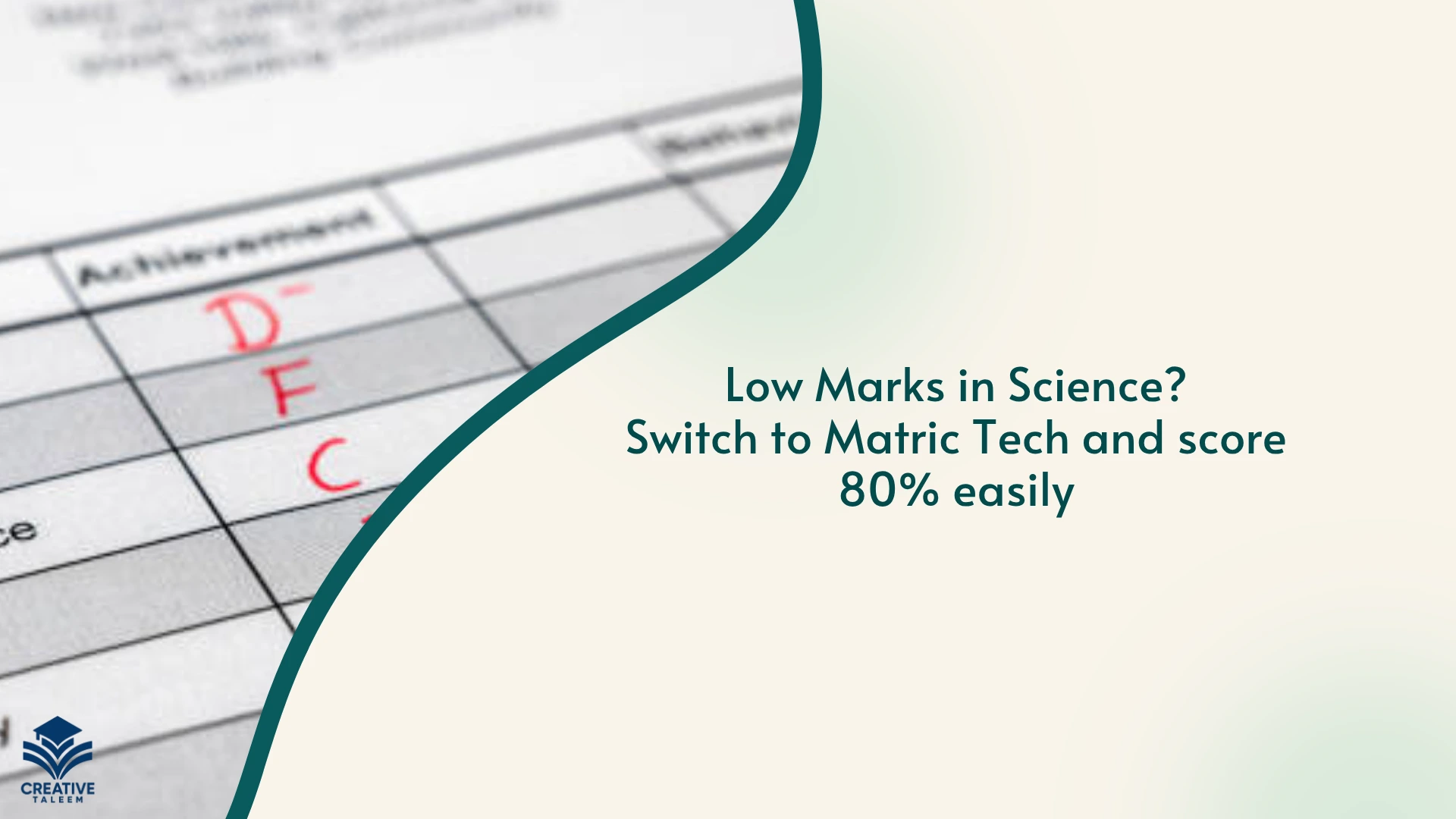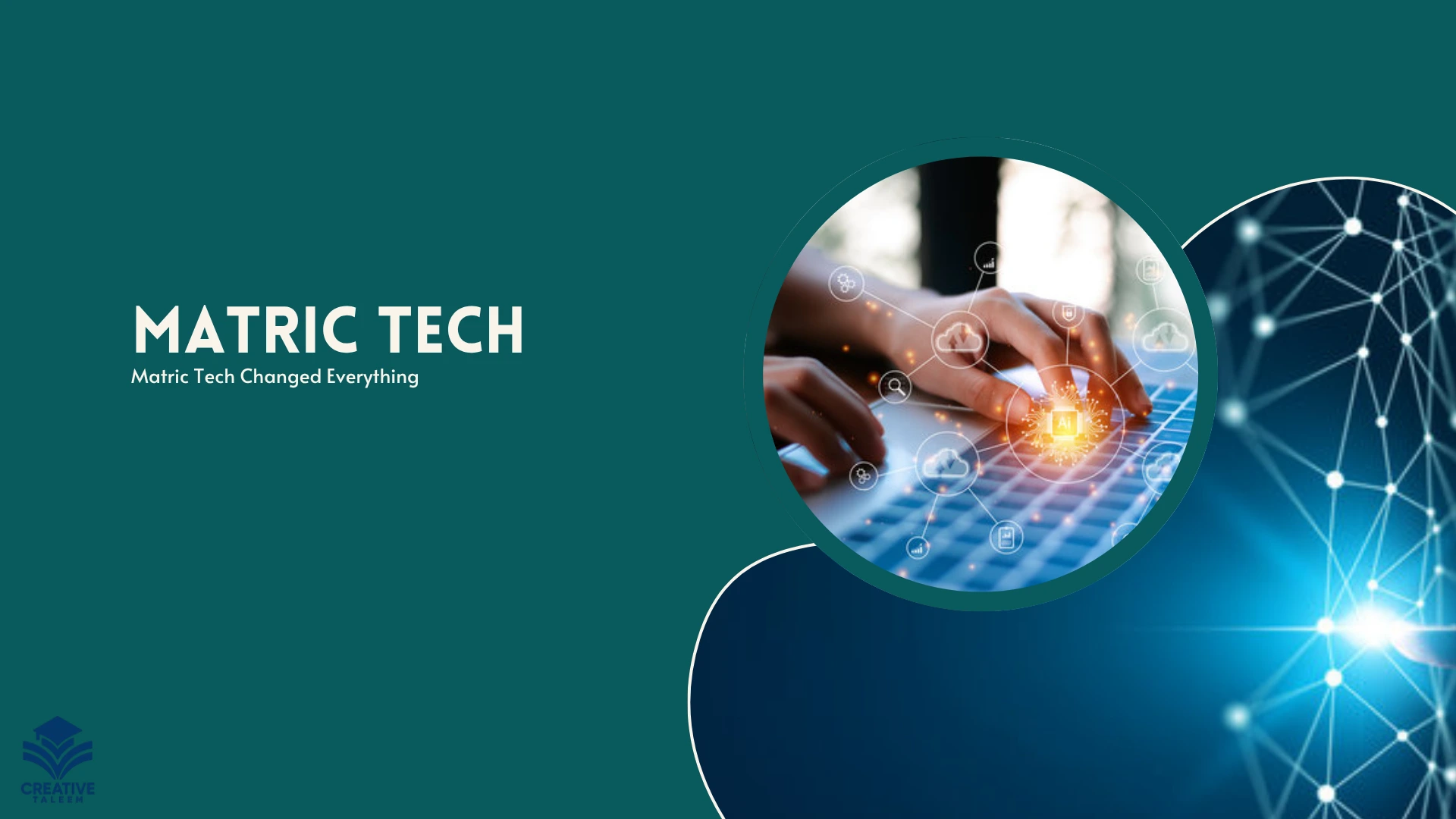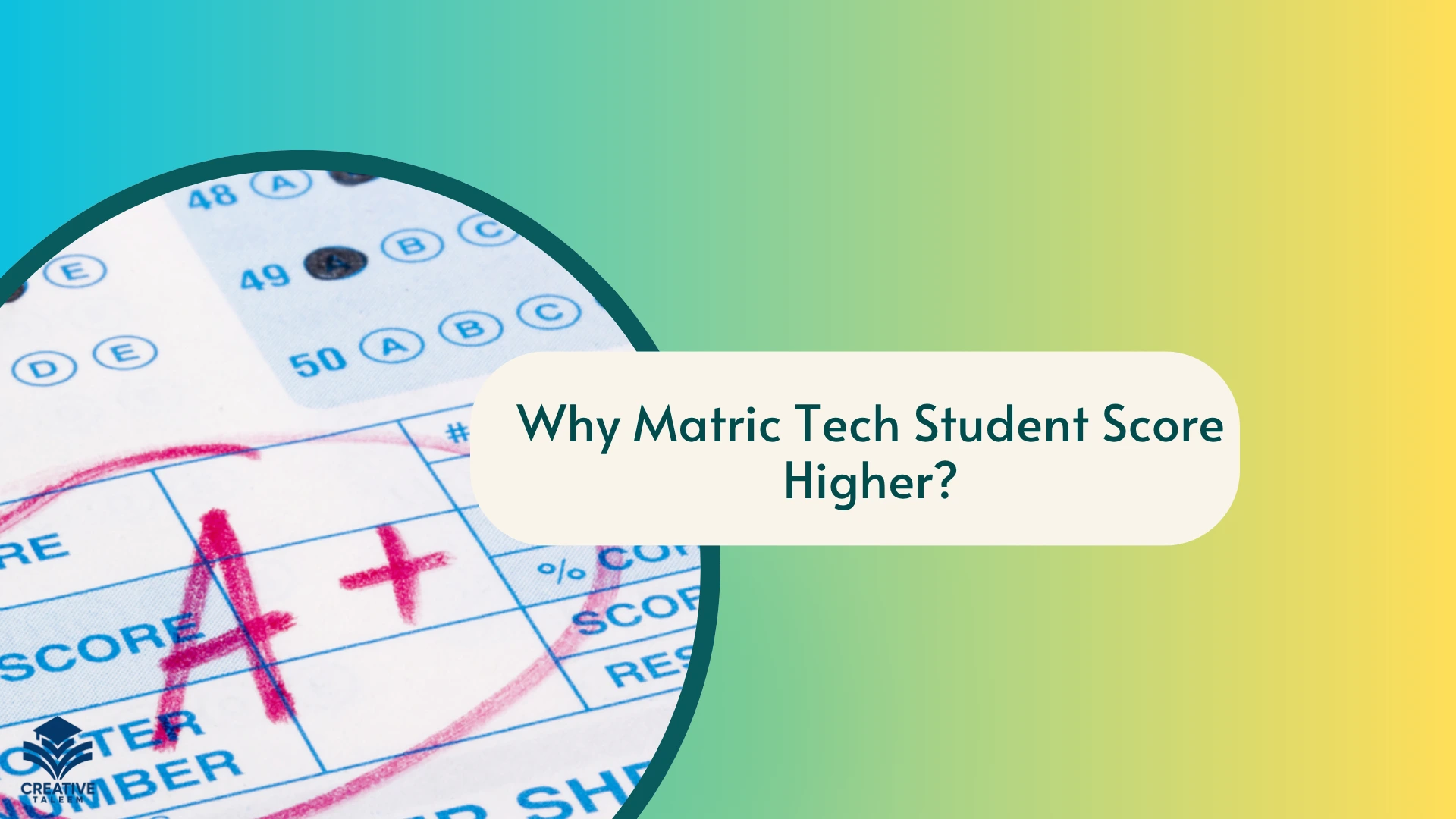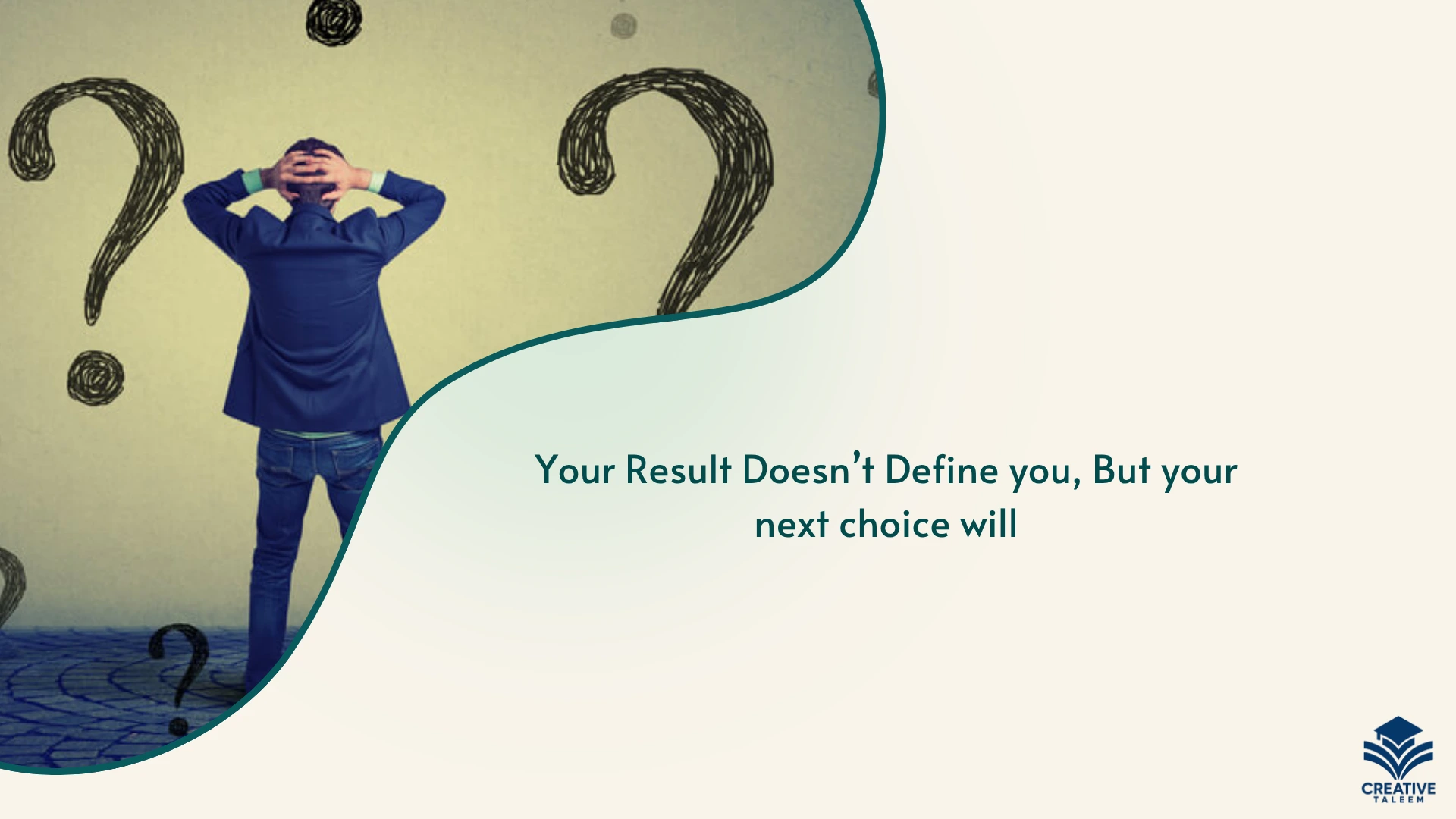Low Marks in Science? Switch to Matric Tech and Score 80% easily
Struggling with Science subjects? Discover how Matric Tech can help you score 80%+ easily with practical education and better career options.

Last week, I met a student named Ahmed who was sitting outside his school with tears in his eyes. When I asked what happened, he said he got 45% in his 9th class science subjects and felt like his future was over. I told him something that changed his perspective completely: your low marks in science don't mean you're not smart. They just mean science isn't your natural path, and that's perfectly okay.
The Harsh Reality of Science in Matric
Every year in Pakistan, approximately 10 to 20 lakh students appear in their 9th class matriculation exams. But here's the shocking truth that nobody talks about: only 40 to 48% of these students pass with complete marks. Even more concerning, around 12 to 20% of those who do pass only make it through because of grace marks.
Think about those numbers for a moment. That means more than half of Pakistan's students either fail or barely scrape through with help. This isn't because Pakistani students aren't capable. Our students are incredibly talented and hardworking. The problem lies in the rigid structure of our traditional science education system.
In the traditional matric science system, students basically have two choices: Biology or Computer Science. If you choose Biology, the path is predetermined. You study Biology in matric, then you go to college for FSc Pre-Medical, then you spend months or even years preparing for entry tests, and then you take the test hoping to get into medical school. If you don't pass, you're told to change your entire field. That's incredibly frustrating and demoralizing.
Why Students Drop Out or Fail
I've talked to hundreds of students and parents over the years, and certain patterns keep emerging about why science students struggle so much.
The Syllabus Fear Factor
Many students look at the Punjab Board syllabus and feel overwhelmed before even starting. The thick textbooks, complex formulas, and abstract concepts in Physics, Chemistry, and Biology can be genuinely intimidating. Some students get so scared that they convince themselves they can't do it, creating a self-fulfilling prophecy.
The Double Academy Trap
In Pakistan, there's this culture where students attend regular school in the morning and then rush to academies in the evening. Some students even attend two different academies for different subjects. They're studying the same material three times over, yet still struggling. Why? Because repetition without understanding doesn't lead to learning. It just leads to exhaustion and confusion.
Learning What Doesn't Match Your Skills
Here's something most education systems ignore: not everyone learns the same way, and not everyone has the same natural aptitudes. Some students are fantastic with their hands and can fix anything mechanical, but they struggle with theoretical Chemistry equations. Some students are creative and visual thinkers who would excel in design, but they're forced to memorize Biology terminology that doesn't interest them.
When students study subjects that don't match their natural abilities or interests, even small topics feel like climbing mountains. The effort they put in doesn't translate to good results, leading to disappointment and sometimes complete dropout from education.
How Matric Tech Solves These Problems
In 2025, the Pakistani Ministry of Education launched Matric Tech, and it's genuinely revolutionary. This isn't just another educational program. It's a complete rethinking of how we educate students at the secondary level.
The goal is simple but powerful: ensure that every Pakistani student can receive quality education that matches their abilities and interests. Instead of forcing everyone through the same narrow path, Matric Tech offers multiple specialized tracks that combine practical skills with academic knowledge.
Study What You Already Know
This is where Matric Tech becomes truly brilliant. Imagine a student whose father works in electrical wiring. That student has been watching electrical work his whole life, helping his father, understanding circuits and connections instinctively. Now imagine that same student taking Matric Tech's Electrical Wiring course. He doesn't need expensive academies. He doesn't need to struggle to understand basic concepts. He already has practical knowledge, and the course helps him formalize and expand that knowledge.
Can that student score high marks? Absolutely! In fact, he'll likely score higher than many science students because he's studying something he genuinely understands and can apply. He might even achieve 80% or higher without the stress and expense of multiple academies.
The Four Major Matric Tech Groups
Agriculture Sciences Group
Pakistan is an agricultural country, yet we've traditionally treated agriculture as a backup option. The Agriculture Sciences Group changes this completely. Students study Physics (Tech), Chemistry (Tech), Biology (Tech), and Agriculture Sciences. Students learn crop management, modern irrigation techniques, soil science, agricultural technology, and agribusiness.
Health Sciences Group
For students interested in medical and health fields but struggling with traditional science subjects, the Health Sciences Group is perfect. Instead of abstract theories, students learn how these sciences apply directly to health and medicine. They study anatomy, basic healthcare, disease prevention, and health management.
Computer Science Group
In our increasingly digital world, the Computer Science Group prepares students for the future. The subjects include Physics (Tech), Chemistry (Tech), Computer Science & Entrepreneurship (Tech), and ICT. Students don't just learn to code; they learn to create technology-based businesses and think like innovators.
Technical Elective Subjects: Immediate Career Skills
Beyond the main groups, Matric Tech offers incredible elective technical subjects that provide immediate career opportunities. These aren't just academic exercises. These are real, marketable skills.
Geometrical & Technical Drawing teaches precision and spatial understanding crucial for engineering. Electrical Wiring provides practical skills always in demand. Wood Work and Furniture Making can lead to carpentry businesses. Repair & Maintenance of Refrigerator & Air Conditioner is particularly valuable in Pakistan's hot climate.
Computer Hardware teaches students to build and repair computers. Poultry Farming and Fish Farming address Pakistan's food needs while creating entrepreneurial opportunities. Dress Making, Fashion Designing, and Beautician courses tap into Pakistan's growing fashion and beauty industry.
Real Students, Real Success Stories
Fatima scored 52% in her 9th class science subjects and was devastated. Her parents wanted her to continue with FSc Pre-Medical, but she knew she couldn't handle it. She switched to Matric Tech's Health Sciences Group in 10th class. The technical approach to science subjects made much more sense to her. She scored 78% in her matric exams and is now pursuing a diploma in medical technology.
Bilal failed his 9th class completely because he couldn't understand Chemistry and Physics. He repeated 9th class in Matric Tech's Computer Science Group. Not only did he pass, he scored 82%. Today, he's learning web development and has already started freelancing, earning money while still studying.
These aren't exceptional cases. These are becoming normal outcomes for students who choose educational paths that match their abilities and interests. Remember, your result does not define you, but your next choice will.
Pakistani Students Are Incredibly Capable
Let me be very clear about something: Pakistani students are not lacking in intelligence or capability. Our students are talented, hardworking, and capable of amazing achievements. What they've been lacking is proper direction and appropriate educational options.
For decades, we've been forcing square pegs into round holes, telling students they're failures when the real failure was in our rigid system. A student who struggles with Chemistry but can design beautiful clothes isn't a poor student. They're a fashion designer forced to study the wrong subjects.
Matric Tech recognizes this fundamental truth. It provides the proper direction that Pakistani students deserve. When students study subjects aligned with their natural abilities and interests, they don't just pass. They excel. They thrive. They discover their potential.
Final Thoughts: Your Path to 80%+ Marks
Scoring 80% or higher isn't some impossible dream reserved for genius students. It's completely achievable when you're studying subjects that match your abilities and interests. Matric Tech makes high scores accessible to students who previously struggled because it aligns education with natural aptitude.
If you're getting low marks in science, it doesn't mean you're not smart enough. It means science isn't your natural path, and that's perfectly fine. The world needs fashion designers, technicians, agriculturists, health workers, and IT professionals just as much as it needs doctors and engineers.
Stop struggling with subjects that don't suit you. Stop wasting money on multiple academies trying to force understanding that won't come. Instead, switch to Matric Tech, study what matches your abilities, and watch your marks climb to 80% or higher. Your future self will thank you for making this smart decision today.
For more guidance about Matric Tech programs and making smart educational choices, visit Creative Taleem. We're here to help Pakistani students navigate their educational journey with practical, real-world advice.
Frequently Asked Questions
Can I switch from Science to Matric Tech after 9th class?
Yes, you can switch to Matric Tech after 9th class. Many students who struggled with traditional science subjects in 9th class switch to Matric Tech in 10th class and see significant improvement in their marks. The switch process is straightforward and most schools now offer Matric Tech options.
Is Matric Tech certificate equal to regular Science matric?
Yes, Matric Tech is fully recognized by all Pakistani education boards. The certificate has equal value for further education and employment. In fact, for many technical careers and vocational programs, Matric Tech graduates often have an advantage due to their practical skills.
What career options are available after Matric Tech?
Matric Tech offers numerous career paths including IT and computer-related jobs, electrical and mechanical technician roles, agriculture and farming businesses, healthcare support positions, fashion designing, AC/refrigerator repair, beauty services, and entrepreneurship. Many Matric Tech graduates start earning immediately after completing their matric.
Why do Matric Tech students score higher marks?
Matric Tech students often score higher because they study subjects that match their natural abilities and interests. Instead of struggling with abstract theories in traditional science, they learn practical skills they can relate to and understand easily. When education aligns with aptitude, learning becomes easier and marks naturally improve.


